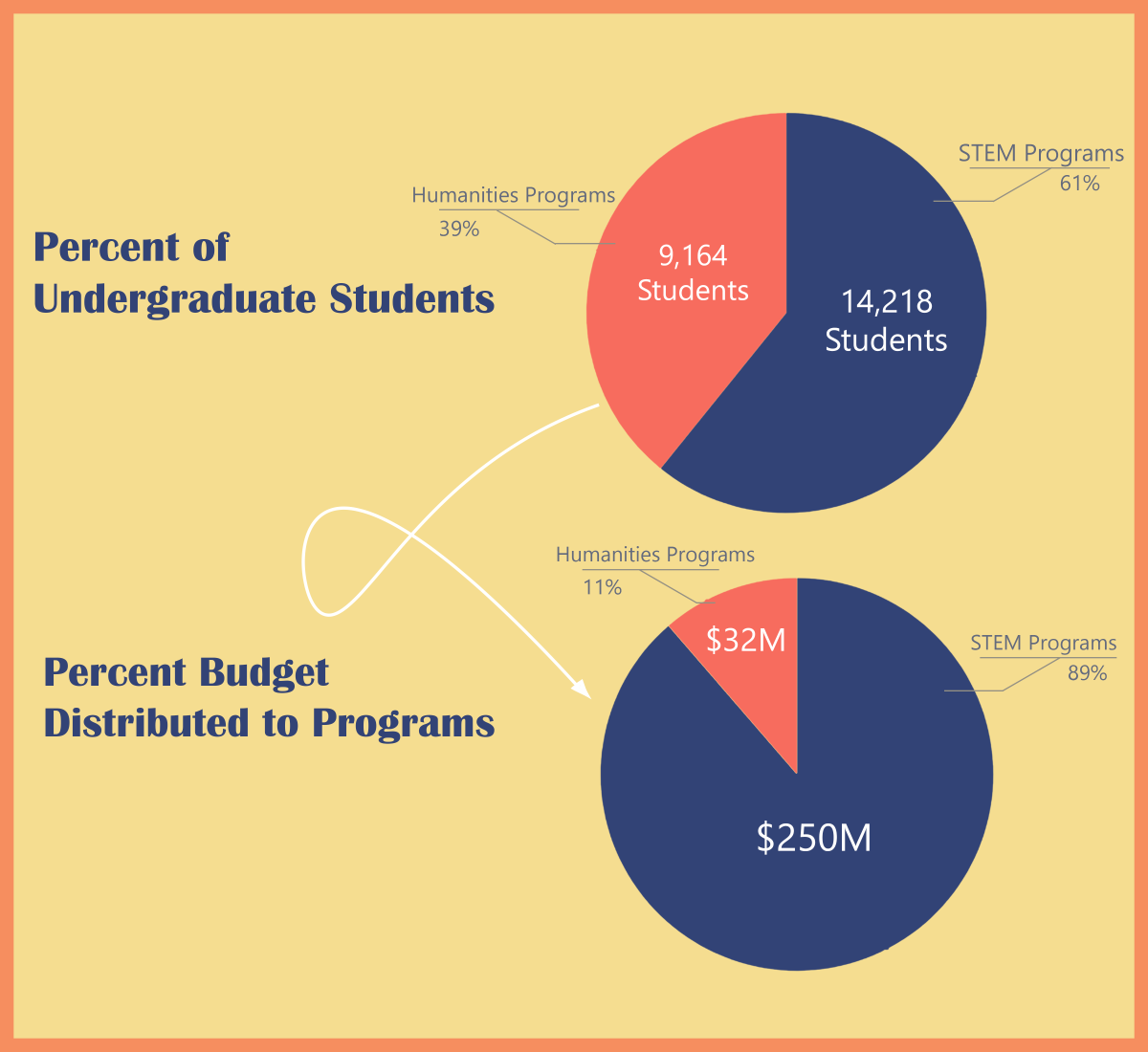NC State’s announcement of a $50 million expansion to the College of Engineering has largely been seen as a positive step for the University. While this investment offers valuable resources to the school, it comes at a time where many other degree programs are seeing an extreme lack of resources and classroom spaces. This decision is largely reflective of the culture created within the University of supporting science, technology, engineering and math majors and neglecting other colleges.
My PS 362: American Political Thought class has over 40 students. Every Tuesday and Thursday, we are crammed into a small classroom in the basement of Caldwell Hall sitting nearly shoulder to shoulder with other students. Our professor specifically requested to be moved to a larger classroom to accommodate students but was denied one by the University. Dozens of students on the waitlist were unable to get into the course and our classroom is now full to the brim.
Brodie Smith, a third-year studying political science, said small class sizes inhibit students’ abilities to take classes essential to their majors.
“These classes with limited seats, especially in CHASS, which are required for our degree make it harder for us to take courses that we need to graduate,” Smith said. “With only a few sections of courses that students from multiple majors try getting into, we end up falling behind because we can’t get into the classes we need to complete our degree.”
Smaller class sizes force students to take classes they may not want or aren’t helpful to their degree audits. This not only puts them behind in their classes but also forces students to pay for classes they don’t necessarily want to take. On many occasions throughout my two years at NC State, I have had to rearrange my schedule and four-year plan simply because class sizes are not big enough to accommodate all students.
The lack of investment in other degree programs also affects many STEM majors who are pursuing non-industry jobs. Sarah Coull, a fourth-year studying environmental engineering, explains how this lack of resources has affected her time at NC State.
“As an engineering major looking to go into environmental policy and government work, I feel isolated because they [NC State] emphasize industry so much and don’t provide resources to students who aren’t necessarily looking to go into industry,” Coull said. “It further insinuates that these fields are better than others when in reality, interdisciplinary work is the future.”
Many students who major in engineering or STEM-related degrees aren’t necessarily looking to work directly in the industry. There are a plethora of jobs that incorporate the various disciplines and principles offered at the University. There is a stunning lack of opportunities and resources available to such people, which isolates entire groups of students who are in need of opportunities.
According to the NCSU FY 2021-2022 Budget, the College of Agricultural and Life Sciences spent $90 million in extramural contracts and grant expenditures and the College of Engineering received $95 million. The College of Humanities and Social Sciences spent only $6 million and the Poole College of Management spent only $2 million. It’s undeniable that there is an extreme lack of resources in colleges that aren’t correlated to STEM.
There are many ways for NC State to pursue changes. Upgrading buildings on main campus and increasing classroom sizes is a good start. In addition to this, the University should encourage more unique and non-STEM/tech companies to advertise to our student body.
Engineering has dozens of career fairs and is given the opportunity to network with major companies while other programs aren’t offered such opportunities. CHASS has offered its students career fairs, with the most recent one being this coming Friday, March 4. However, these career fairs often only showcase local and smaller companies in comparison to the major fairs held for the College of Engineering. While this is still valuable experience, the opportunities they bring don’t quite compare to those brought by the College of Engineering.
With over 100 majors offered here, barely any get the amount of attention engineering and STEM majors do. The University’s culture of supporting STEM students and neglecting others is deeply bred into its institutions. These differences have manifested themselves in the availability of resources and opportunities for non-STEM students across the University. There is more to our school than just engineering and it’s time for NC State to acknowledge the need of all their students — not just STEM.














